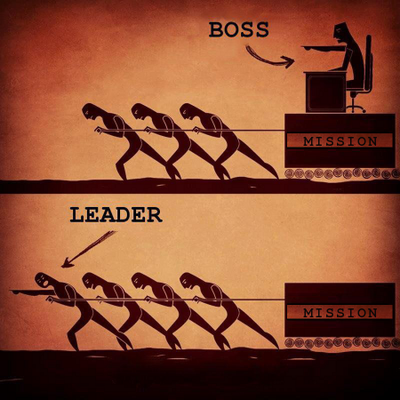
Gianpiero Gamaleri wrote an article named Media Ecology, Neil Postman’s Legacy. This article focuses on the mapping of media ecology through the perspective of Dennis G. Cali. Although the main points of Media Ecology given by Marshall McLuhan are addressed, Cali had a different research method for this theory. Cali focused his research on “studying the balances that can make this change useful for the development of future humanity” (Gamaleri). Professor Cali breaks up media ecology into seven points. These points break up Media Ecology into different perspectives, such as looking at Media Ecology as a metaphor or as a theory of groups. By breaking up this theory you are able to gain different perspectives of the overall picture.
Media Ecology is a theory of mass communication that studies the “different personal and social environments created by the use of different communication technologies.”(310). In order to look into Media Ecology, the concepts of Symbolic Environment, Media, and Medium are explained. Although evaluating the different media ecologies can be challenging but are not impossible. You first must understand how the environments are created and how they affect the individuals using the technologies, or “human inventions that enhance communication”(311). These advancements in technology helped McLuhan assign historical eras based on the technology they used and their dominant sense receptors. Furthermore, Technology that further advances our communication abilities is known as media. McLuhan wanted us to understand that the medium, or “a specific type of media, such as a book” is often overlooked; “for the content of a medium, is like the juicy piece of meat carried by a burglar to distract the watchdog of the mind”(310). This metaphor is important to understand because it shows how we focus so much on the content and tend to disregard the medium.
Right off the bat, we can draw similarities between Cali’s research and McLuhan’s. Cali Broke up media ecology with different concentrations. For example, when looking at Media Ecology as a study of environments there are tangents from McLuhan’s intuition of each medium, which inevitably would change the bigger picture of things. But when looking at Media Ecology as a Metaphor, it contributes to preserving and fixing the image of the world and how the image has been damaged. Overall the main definition of Media Ecology stays constant, how it is applied varies based on the interpretive lense that the other is wearing. Through both readings, the need for human interaction is evident. In addition to the advancements that were made, humanity was always the cause of the switch in historical eras. Although some scholars will argue that these technologies played major rules in history it can be concluded that the invention itself played a minor role but society itself influence the change. By understanding both the Media and the Medium people developed different perspectives and have the opportunity to reveal fallacies. By focusing on the content itself rather than the way it is communicated, part of the message is lost forever because the content means nothing outside of the medium or the way that the original message is delivered. This is seen in today’s society quite often. Living in the Digital age, we text and community though messages sent through technology. Yes, this is beneficial but it is easy t miss understand an individual because there are no emotions, nonverbals, or special delivery that can help shape the content. At the end of the day, “the content or message of any particular medium has about as much importance as the stenciling on the casing of an atomic bomb.”
 In the text, A First Look at Communication Theory, written by Em Griffin looks at the different theories and different approaches to building a theory. In chapter 5, the theory of self, more importantly, the “Looking-glass self” was addressed. Essentially this theory explains how we act based upon how others think about us. In more general terms, we judge ourselves based upon what we think others think about us. Sometimes these predictions are true and others can lead us down a path of lies. Although I have only been on this earth for Twenty two years, I have learned a good amount, but more importantly, I have reflected on the past chapters in my life to see what I have done and how I can improve myself. One of the most awkward times in anyone’s life is middle school. For me, Middle school was attempting to look cool for other people. A major part of this was physical but a lot was mental. I had an image of cool based on what my friends deemed were cool and I tried to follow it. I wore hightop Nikes and T-shirts that were two sizes too big because I thought that my friends thought it made me cool. My assumption of what others thought about me changed how I acted and communicated with others on a daily basis. As a direct result, I was focused on the me and disregarded the I factor in my own story.
In the text, A First Look at Communication Theory, written by Em Griffin looks at the different theories and different approaches to building a theory. In chapter 5, the theory of self, more importantly, the “Looking-glass self” was addressed. Essentially this theory explains how we act based upon how others think about us. In more general terms, we judge ourselves based upon what we think others think about us. Sometimes these predictions are true and others can lead us down a path of lies. Although I have only been on this earth for Twenty two years, I have learned a good amount, but more importantly, I have reflected on the past chapters in my life to see what I have done and how I can improve myself. One of the most awkward times in anyone’s life is middle school. For me, Middle school was attempting to look cool for other people. A major part of this was physical but a lot was mental. I had an image of cool based on what my friends deemed were cool and I tried to follow it. I wore hightop Nikes and T-shirts that were two sizes too big because I thought that my friends thought it made me cool. My assumption of what others thought about me changed how I acted and communicated with others on a daily basis. As a direct result, I was focused on the me and disregarded the I factor in my own story.






 “The Road to Auschwitz Wasn’t Paved With Indifference” is a moving article featuring people’s inability to walk on their own path and fall into social pressures. With the internet taking over the world, we have all seen a video of that one tired teenager in his class who happens to fall asleep during the lecture. Once the teacher notices he very quietly asks the other students to start clapping their hands. Once they all start clapping the sleeping student wakes up and starts clapping their hands. This is a great example of social proof. When your preception is everyone is doing it, that perception soon becomes your reality. I have fallen victim to this when I was looking for a good dessert place after a good dinner. I was walking around downtown San Francisco and saw a line that was out the door. Naturally, I waited because I thought it would be amazing. Little did I know that they just had slow service and were not the best dessert place.
“The Road to Auschwitz Wasn’t Paved With Indifference” is a moving article featuring people’s inability to walk on their own path and fall into social pressures. With the internet taking over the world, we have all seen a video of that one tired teenager in his class who happens to fall asleep during the lecture. Once the teacher notices he very quietly asks the other students to start clapping their hands. Once they all start clapping the sleeping student wakes up and starts clapping their hands. This is a great example of social proof. When your preception is everyone is doing it, that perception soon becomes your reality. I have fallen victim to this when I was looking for a good dessert place after a good dinner. I was walking around downtown San Francisco and saw a line that was out the door. Naturally, I waited because I thought it would be amazing. Little did I know that they just had slow service and were not the best dessert place.